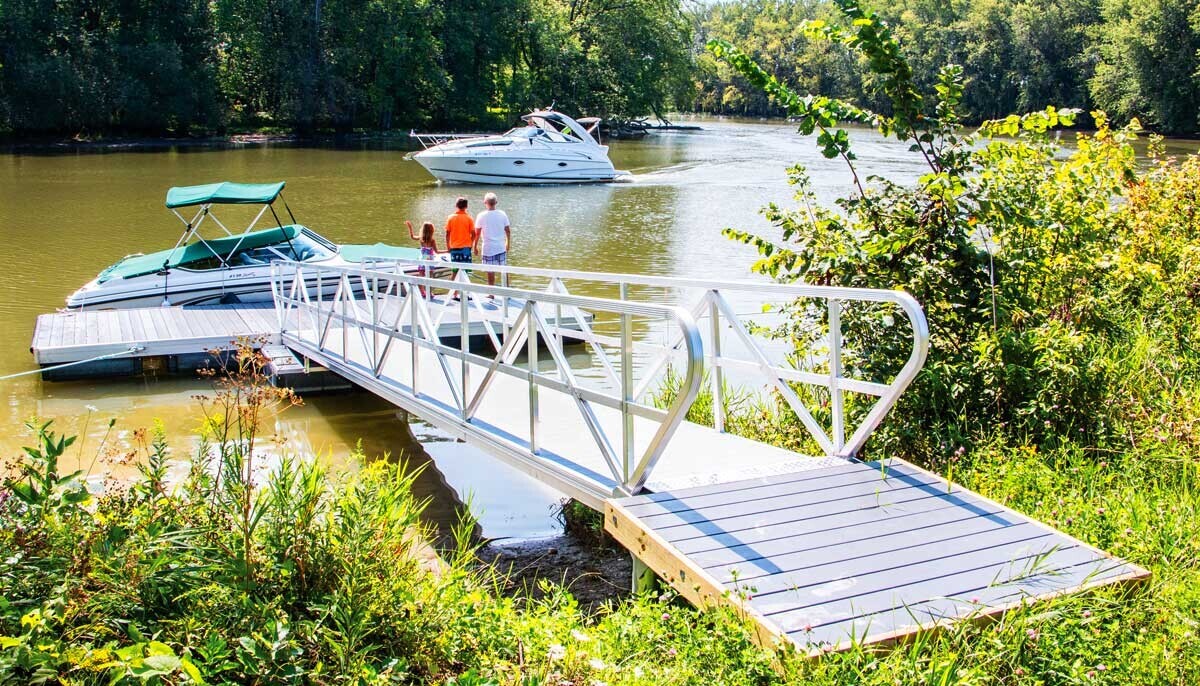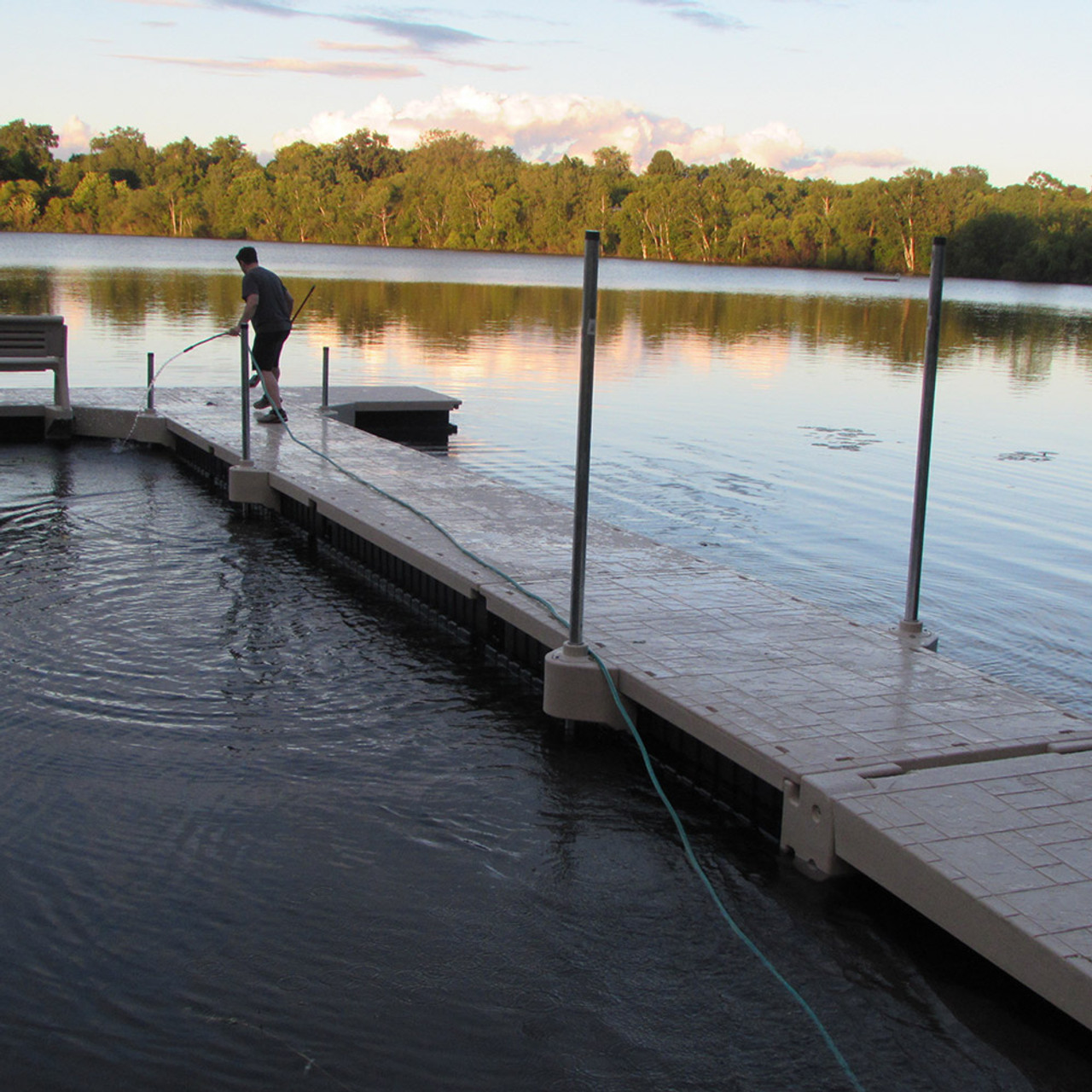Why Your Following Investment Needs To Be with a Specialist Dock Company for High Quality Docks
The Ultimate Guide to Picking the Ideal Floating Docks
Choosing the perfect floating dock calls for a detailed understanding of various components that influence both performance and durability. Elements such as dock types, materials, and crucial features substantially influence your decision-making process.
Understanding Floating Dock Kind
When selecting a floating dock, it is important to understand the numerous types available, as each offers unique objectives and applications. Floating docks mainly fall under 3 categories: modular, fixed, and pontoon docks.
Modular docks are made up of private areas that can be quickly set up or reconfigured, making them excellent for transforming water degrees and varied uses, such as commercial operations or entertainment tasks. Their adaptability enables personalization based on particular needs.

Pontoon docks are characterized by their resilient structure, commonly composed of several pontoons that offer security and support. They are specifically well-suited for bigger vessels and are commonly utilized in marinas or for beachfront homes. Recognizing these types aids in picking the most suitable floating dock to meet particular requirements, ensuring optimal performance and safety and security.
Key Materials for Longevity
Selecting the best materials for floating docks significantly effects their toughness and long life. One of the most common materials include wood, plastic, metal, and composite materials, each offering unique benefits and constraints.
Timber, often favored for its aesthetic appeal, requires regular maintenance to stand up to wetness and degeneration. Pressure-treated lumber can improve resistance to rot, however it might still be prone to parasites and weathering.

Plastic docks, made from high-density polyethylene (HDPE), are resistant to deterioration, UV radiation, and effect, making them a popular selection for coastal environments. Their light-weight nature likewise helps with easy setup and relocation.
Steel docks, generally created from aluminum or galvanized steel, provide phenomenal stamina and sturdiness. They are resistant to rust, especially when dealt with, however may call for extra insulation to stop warmth build-up in warm climates.
Composite products, combining timber fibers and plastics, deliver the benefits of both timber and plastic, withstanding dampness and fading while requiring very little upkeep. - dock company
Eventually, the selection of materials ought to straighten with environmental problems, planned use, and upkeep choices to guarantee the floating dock continues to be functional and visually pleasing with time.
Vital Attributes to Consider
While the option of products is critical, considering vital attributes for floating docks is similarly vital to ensure ideal efficiency and customer satisfaction. One essential function to assess is the dock's buoyancy ability, which identifies just how much weight it can sustain without immersing. floating dock builder. This is essential for accommodating watercrafts, individual watercraft, and also entertainment tasks
In addition, transportability is a significant consideration. Depending on your needs, you may want a dock description that is easy to disassemble and transfer, especially if you prepare to move it seasonally. Stability is linked here another vital function; a well-designed floating dock should minimize activity triggered by wind and water currents, giving a safe and secure system for customers.
Safety and security attributes, such as non-slip surface areas and rounded edges, are also critical to prevent crashes, specifically in damp conditions. Furthermore, think about the accessibility of accessories, such as cleats, bumpers, and ladders, which can improve the performance of your dock.
Setup and Maintenance Tips
Establishing and keeping a drifting dock requires careful preparation and focus to information to guarantee its longevity and optimal efficiency. Begin by choosing a suitable location that decreases direct exposure to strong currents and waves, which can create damage. Make sure that the water depth is enough for the dock's height which it is secured safely to avoid movement.
Throughout installation, adhere to the maker's guidelines carefully, as inappropriate assembly can jeopardize security. Use top notch materials resistant to deterioration, such as aluminum or treated timber, to boost sturdiness. Routinely check all parts, including floats, Discover More Here ports, and securing systems, for signs of damage or wear.
If your dock uses flotation protection tools, ensure they stay cost-free and undamaged from leaks. By adhering to these setup and maintenance tips, you can enjoy a reliable and useful floating dock for years to come.
Budgeting for Your Dock
Budgeting for your dock is an important step that can considerably impact your total satisfaction and financial investment in a waterside building. Developing a clear budget aids you navigate the various alternatives offered and ensures you make educated decisions that align with your monetary capabilities.
Begin by establishing the dimension and design of the dock you call for, as these elements will greatly affect the cost. Floating docks can differ significantly in rate, depending upon products, buoyancy, and functions like ramps and accessories. Research various producers and distributors to compare rates and comprehend the market worth.
Along with preliminary costs, think about ongoing expenditures such as upkeep, insurance, and possible repairs. Designate funds for these recurring expenses to stay clear of surprises down the line. It's likewise sensible to allocate any type of essential permits or assessments, which might be required by regional laws.
Lastly, maintain in mind the possible return on investment. A well-planned dock can improve your property's value and charm, giving a positive financial effect in the lengthy term. By budgeting properly, you can ensure that your dock meets your requirements without endangering your economic security.
Verdict
In final thought, selecting the ideal floating dock requires a comprehensive analysis of different elements, consisting of dock types, materials, crucial functions, and setup processes. Mindful factor to consider of monetary restraints will better make sure a sound investment.

While the selection of materials is important, taking into consideration important functions for floating docks is equally essential to make sure optimum efficiency and user complete satisfaction.Setting up and preserving a drifting dock calls for mindful preparation and attention to detail to guarantee its long life and optimum efficiency. Floating docks can differ significantly in price, depending on materials, buoyancy, and functions like ramps and accessories.In conclusion, selecting the perfect floating dock necessitates an extensive examination of different aspects, consisting of dock types, materials, important features, and installation procedures.